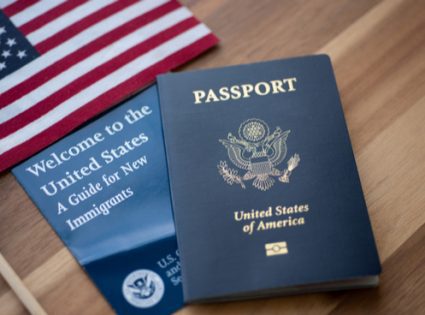Can a Felon Get a Passport?
By M L | Updated May 15th, 2023

Traveling the world is an incredible experience – full of adventure, new cultures, and exciting stories. It’s a great way to broaden our horizons and explore what this fantastic planet offers. But it can be intimidating if you don’t know much about international regulations and requirements – especially if you have a criminal record.
Have you ever asked, “Can a felon get a passport?” Yes, in short answer, a felon could get a passport under certain conditions. We’ll look at how these convictions affect your ability to travel domestically and internationally – so you can ensure your next trip is as stress-free as possible.
Can a Felon Get a Passport?
Can you get a passport as a convicted felon? Despite committing a serious offense, a felony is still eligible for bail and allows domestic and international travel within or outside the United States. It is possible to leave any other country using your existing passport. There have been cases where individuals could obtain a passport despite serving time or being convicted of a felony.
If:
- The person who was convicted has served their complete sentence of imprisonment.
- Individuals who have either been acquitted or completed their sentence have been legally released.
- The accused had no unpaid bills, arrest warrants, or pending charges.
- The felon had surrendered the $5000 bail bond to the court.
- The accused had been proven innocent of the felony charges.
What Disqualifies You From Getting A US Passport?
A wide range of crimes can be considered felonies, some of which may result in punishment through fines rather than imprisonment. The United States federal law specifies certain felonies that can lead to a passport denial.
Please remember that what constitutes a “heinous crime” or “petty crime” can vary from one state or country to another. This means that a misdemeanor in the U.S. could be considered a felony in another country.
- Drug Trafficking
- Financial Fraud
- Human Trafficking
- An outstanding alimony or child support
What Felonies Disqualify You From Getting a Passport?
- Assault
- Cybercrime
- Rape/sexual assault
- Child pornography
- Kidnapping
- Manufacturing and selling drugs
- Animal cruelty and sodomy
- Tax evasion
What are the Rules for A Felon to Leave the Country?
International laws allow felons to apply for a passport to travel abroad only if they can demonstrate that they have reformed their behavior and are eligible for a second chance.
Felons must go to the embassy or consulate of the country they want to visit and present themselves in person to obtain a passport. This rule exists to streamline the process of collecting their information.
Felons often choose countries with more relaxed travel policies and rehabilitative opportunities to rebuild their lives and reputations with greater freedom.
The rules permit convicted, accused, or ex-felons to obtain a passport and leave the country.
- Felon faced either a life imprisonment sentence or a fine as a penalty.
- The court has legally released a person accused of a crime.
- The accused felon must not have unpaid charges, arrest warrants, or debts.
- To be released on bail, a felon must have $5000.00 or be bailed out by a bondsman.
- The felon’s charges have been proven.
Related Read: Do You Need a Passport to Fly Domestic?
How Long Before a Felon Can Get a Passport?
Having a criminal record or owing child support payments of $2,500 or more can affect your eligibility to apply for a U.S. passport. Similarly, if you’re on probation or parole, you’ll need permission from your supervising officer to apply for a passport.
- Individuals convicted of certain crimes, such as sexual assault, are prohibited from obtaining a passport, even after they have served their sentence.
- You can apply for a passport once you provide sufficient documentation proving no outstanding charges or warrants.
Determining the time frame for felons to acquire a passport is a multifaceted issue. Certain individuals may become eligible as soon as six months after serving their sentence, while others may need to wait for a minimum of five years. There are also instances where eligibility may not be granted at all.
Conclusion
In conclusion, getting a passport as a felon can be a complex process. It is possible to get a passport if given the proper conditions, but it remains difficult for most individuals in this situation.
Even though felons may face setbacks in obtaining a passport, resources like the U.S. Department of State and the Federal Criminal Justice Resource Center are available to make the process more manageable.
When considering all aspects, it is essential for felons to consider their unique circumstances to determine if they are eligible for a passport or not.
